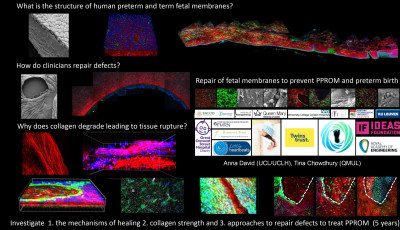News
Wellcome awards £1.8M funding to prevent preterm birth
1 February 2024

Climate change impact award
Led by Prof Andrew Prendergast who is the Director of the Zvitambo Institute for Maternal and Child Health Research in Zimbabwe, the team have established clinical trials to promote healthy birth and growth. Funding by the Wellcome Climate Impact Award will support a transdisciplinary team of UK-Zimbabwe climate scientists, bioengineers, epidemiologists and obstetricians working towards understanding how extreme heat affects pregnancy and preterm birth .
Climate change may increase the risk of preterm birth
In Zimbabwe, more than one in ten pregnant women has a preterm birth and prematurity is the leading cause of under age 5 deaths. Currently, there are few interventions to prevent preterm birth in Zimbabwe. Clinical trialists and epidemiologists from the Blizard Institute and the Wolfson Institute for Population Health, and in Zimbabwe at the Zvitambo Institute for Maternal and Child Health Research will determine the relationship between extreme heat and prematurity in rural Zimbabwe. The team will collect longitudinal biological samples, map household locations and deploy high-resolution sensors to measure temperature and humidity from pregnant people who are affected by climate change.
Working with Tina Chowdhury, from the School of Engineering and Materials Science, the bioengineers will explore associations between extreme heat and inflammatory mechanisms underlying preterm birth. Clinical biomarkers identified during pregnancy will be investigated with a human in vitro model to discover how heat stress amplifies inflammation leading to rupture and preterm birth. Our hypothesis is that extreme heat exacerbates inflammatory mechanisms and damages the integrity of the fetal membranes leading to its weakening, mechanical failure and rupture. Together this programme of work will help tp unlock our understanding of the mechanisms underlying preterm birth and inform future intervention strategies.
Andrew Prendergast who is Professor of Paediatric Infection and Immunology at the Centre for Genomics and Child Health said “We are thrilled to receive this Wellcome award. We have spent the past decade running observational and intervention clinical trials at the Zvitambo Institute for Maternal and Child Health Research in Zimbabwe, where our goal is to help children survive and thrive. Funding from Wellcome will enable us to correlate clinical data sets with the environment, and to use clinical specimens collected from women during pregnancy in rural Zimbabwe, to gain a deeper understanding of the mechanisms, driving preterm birth in this setting.”
Tina Chowdhury who has developed models in preterm birth said “In London, we have access to data on climate change, in particular air quality and temperature, but their relevance to women who are at risk of preterm birth is unclear. We have engineered human models to understand the mechanisms of inflammation and how the cellular microenvironment affects membrane integrity. Together with the Zimbabwe team, we will establish the primary drivers of inflammation identified from Zimbabwean cohort studies using the human model. More importantly, linking population data with feto-maternal health from pregnant women will identify the risk factors and potential pathways to intervention to prevent preterm birth.”
We are advertising a PDRA post to join the transdisciplinary team in preterm birth research. Closing date is 30 April 2024. You should contact Tina Chowdhury for details.
| Contact: | Tina Chowdhury |
| Email: | t.chowdhury@qmul.ac.uk |
| Website: | |
| People: | |
| Research Centre: |

